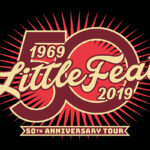“it was just a matter of time before we started clicking on all cylinders.” — Yankees outfielder Justin Christian
 The date: Sept. 12, 2008
The date: Sept. 12, 2008
The place: Durham Bulls Athletic Park (Durham, N.C.)
The situation: They were a game away. But, they had been a game away before.
In 1992, when they were actually an inning away. A Columbus Clippers rally famously dashed those hopes.
In 2000, they forced a Game 5 against Indianapolis with a strong Game 4 win, but tall right-hander Tim Harikkala dominated them on five hits over eight innings in a 6-1 loss.
In 2001, even if they didn’t know it at the time, they lost a deciding Game 1 to Louisville the night before the world changed forever during the 9/11 terrorist attacks in New York City, Washington D.C. and Shanksville.
This time, though, it felt different. This time, they had two cracks at that one game. This time, the Governors Cup felt like it wasn’t just outside of the Scranton/Wilkes-Barre Yankees’ fingertips.
It felt like a matter of time.
The lead-in: The Yankees were still settling into the region. They arrived in 2007 with enough fanfare to fill Yankee Stadium, drawing more than 580,000 fans to PNC Field to see Scranton/Wilkes-Barre win the International League North Division. The excitement was tempered only slightly by the team’s quick exit in the first round, losing three of four to Richmond before heading home.
In 2008, hopes were higher. There would be a more veteran presence on offense, but the young pitching would still be a trademark. This was no longer a team that had the star power of Joba Chamberlain to rely on out of the bullpen, or the everyday consistency of veteran Andy Phillips in the batters box. But, they felt they had enough.
It turned out, to be very true, and barely true, at the same time.
The Yankees didn’t develop much star power in 2008, but the sum of the parts proved to be too much for the International League North Division to overcome. The Yankees went 88-56, tied with West champ Louisville for the best record in the league. But they were just 2 1/2 games better in the division than wild-card winner Pawtucket, the team they outlasted down the stretch once they got some key pieces back on the roster.
One was Shelley Duncan, the tall, lanky slugger who launched 25 homers in 2007 but split most of ’08 between the Bronx, Triple-A and the injured list. He returned in August and blasted five homers.
Another was Phil Hughes, one of the top pitching prospects in the game who burst on the scene in 2007 by nearly pitching a no-hitter for New York. He started the 2008 season in the Yankees rotation, but he struggled badly out of the gate. After allowing six runs on eight hits in 3 2/3 innings in a start against Detroit on April 29, the Yankees placed him on the disabled list with rib and oblique injuries.
The bad news was, it would be months before he’d pitch again. The good news for Scranton/Wilkes-Barre was, it became evident they’d have a healthy Hughes in their rotation for the homestretch. In August, he pitched to a bloated 5.90 ERA, but the Yankees won all five of his starts.
All the while, the Yanks maintained a remarkable level of consistency. They got 22 home runs from a journeyman infielder named Cody Ransom. Their best young prospect on offense, spunky center fielder Brett Gardner, hit .296, reached base at a .414 clip and stole 37 bases. Veteran outfielder Jason Lane hit 16 homers. Six other players — former prospect Ben Broussard, Juan Miranda, Duncan, slick-fielding utility man Nick Green, former first-round pick Eric Duncan and raw outfielder Matt Carson — all joined them in double digits. On the mound, high-priced lefty Kei Igawa struggled in New York and was firmly on his way to bust status, but he won a franchise record-tying 14 games for the Triple-A Yanks, which got consistent — if not statistically flashy — performances from prospect right-handers like Ian Kennedy, Jeff Marquez and Daniel McCutchen.
When they entered their first-round playoff series against Pawtucket, they did so with the rarest of benefits: A deep team largely unaffected by callups. Hughes, Igawa and Kennedy were in the rotation. The Duncans, Miranda and Broussard were all still in the lineup. And manager Dave Miley could manage the squad in September pretty much the same way he could in the middle of August. Which, of course, proved to be a benefit.
The Yankees dispatched rival Pawtucket with relative ease, cruising to a 7-1 win in Game 1 before finishing off the series with a 2-0 shutout in Game 4 behind Hughes’ eight four-hit, shutout innings. He struck out 11, outdueling a 35-year-old Bartolo Colon to send the Yankees to the Governors Cup finals against Durham, the South champ that finished just two games over .500 in the regular season who stunned Louisville in the first round anyway.
The Bulls were young, talented, riding high…but little match for the Yankees in the early games of the series, at least in the moments that mattered most.

SHELLEY DUNCAN celebrates scoring a run against Durham. TIMES SHAMROCK PHOTO
In Game 1, the Yankees took a 4-2 into the seventh, with southpaw Chase Wright keeping the Bulls in check while the Yankees hit one of the top pitching prospects in the game, lefty David Price, hard. But the bullpen struggled, and the Yankees needed a two-run rally in the bottom of the ninth, capped by a two-out RBI single by Eric Duncan, to cap a wild win.
Kennedy and the bullpen held the Bulls scoreless for 13 innings before Bernie Castro’s RBI single in the bottom of the 13th put the Yankees up 2-0 to nothing in Game 2, a significant lead that belied how tightly played the series had been.
Igawa and reliever David Robertson gave the Yankees eight strong innings in Game 3, but the Bulls extended the series with an RBI double by Nathan Haynes that scored Elliot Johnson from first and sent the home crowd into a frenzy.
The back-and-forth, nip-and-tuck, white-knuckler of a series went to Game 4 with no guarantees, no sense of direction, no outcome certain.
Few could have guessed, all things considered, what was coming next.

PHIL HUGHES was dominant in Game 4. TIMES SHAMROCK PHOTO
The moment: It was, in many regards, as good a possible pitching matchup as you could expect in a Triple-A baseball potential elimination game in the middle of September.
Hughes on the bump for the Yankees. Highly regarded prospect Wade Davis taking the ball for the Bulls. After back-to-back pitching duels on the field, it looked like another was coming, at least on paper.
Turned out, the Yankees — one game away, one more time — finally left no doubt.
Davis couldn’t find the strike zone. He walked two in the first inning, but got through it unscathed. He walked three more in the second, and he wasn’t as fortunate.
One came with the bases loaded, to Castro, forcing in the game’s first run. A two-run single by Juan Miranda followed and by the time the second inning ended, the Yankees had a 4-0 lead.
The rout, for all intents and purposes, was on.
Davis didn’t record an out in the second. Eric Duncan and Chris Stewart singled, and a walk to Chris Basak both loaded the bases with nobody out and sent Davis to the showers.
Durham hoped to catch some magic with a right-hander who had created some for Scranton/Wilkes-Barre years earlier. Jeremy Cummings, author of the only nine-inning no-hitter in franchise history, fared no better than Davis, though. Leadoff man Justin Christian launched a two-run double. Castro brought another home with a single. So did Miranda.
Before the Bulls got to the plate in the bottom of the third, in a must-win game for them, they trailed 10-0.
“We’ve been in a lot of close games and our pitching staff has done a great job keeping us in tight ball games,” Christian said. “We as hitters have tried to do what we could do at those times and it just all came out tonight.”
Go figure. After 19 years worth of trial and tumult, surprising highs that led to near misses, the Scranton/Wilkes-Barre Yankees spent most of their biggest night ever just waiting. Waiting for the last out, the pile on the mound, the gloves to be thrown in the air, the champagne to be popped in the clubhouse. Waiting to make those oh-so-close calls in 1992 and 2000 and 2001 a footnote to the biggest moments in franchise history, and not the backbone of Scranton/Wilkes-Barre’s story.
 As the Yankees continued to pound home plate — and they did it eight times in the top of the sixth on the strength of Basak’s two-run double and a three-run bomb by Miranda — Hughes didn’t fold under the spotlight.
As the Yankees continued to pound home plate — and they did it eight times in the top of the sixth on the strength of Basak’s two-run double and a three-run bomb by Miranda — Hughes didn’t fold under the spotlight.
The right-hander dominated the Bulls over five innings, striking out 12, allowing just four hits and leaving with an 18-1 edge.
“I had a little more adrenaline that usual so the ball took off on me some, but I just tried to focus my energy in a positive way and throw strikes,” Hughes said. “Fortunately we put up 20 runs.”
By the time the bottom of the ninth dawned, leading 20-2, the Yankees knew they had it. Lefty Zach Kroenke was on the mound, and he struck out pinch hitter Josh Johnson.
Jorge Velandia, a veteran infielder, grounded out for the second out, but the inevitable got delayed one more time, as it always seemed to for this franchise over the years. Kroenke, one out from the celebration that had eluded Scranton/Wilkes-Barre forever, walked Ronnie Merrill.
It proved to be a momentary lapse for the lefty, and just a brief wait for the Yankees. Kroenke got veteran Chris Richard to hit a foul pop just to the left of the first base bag. Shelley Duncan camped under it, stared into the night sky, made the catch, and it was over.
It was all over.
All but the celebrating. And Scranton/Wilkes-Barre baseball finally had a moment to hang its hat on, a moment it could call itself a champion.
“After the last three games going to the bottom of whatever innings and being walk-off wins, and then doing this, it was almost anticlimactic,” Carson said. “When Shelley caught that last ball it was like, ‘Yeah, we won,’ but it wasn’t what we expected. It was unbelievable.”
HISTORY BEHIND THE MOMENT
 The Yankees played 153 games in 2008, and the 20 runs they scored in the deciding Game 4 easily stood as their season high. And it was a fitting end for a team that saw plenty of transition between the early days in April and the championship series in September.
The Yankees played 153 games in 2008, and the 20 runs they scored in the deciding Game 4 easily stood as their season high. And it was a fitting end for a team that saw plenty of transition between the early days in April and the championship series in September.
Everybody contributed. Every player who started for the Yankees that night scored at least one run. Every player who got in the game had at least one hit. Four different players had three RBIs or more.
Nobody carried the 2008 Scranton/Wilkes-Barre Yankees across the finish line. They sprinted there together, hand-in-hand, and as they celebrated the championship, they did so with JD Closser, a catcher who played in 50 games before being released from his contract in early August. Closser showed up in the clubhouse to share in the championship glow, and over a karaoke machine he brought on the road to celebrate wins that season, Shelley Duncan took the time to announce the names of the ’08 Yankees who helped them hoist the coveted Cup — guys like McCutchen and Ransom, Gardner and reliever Scott Patterson — making sure teammates remembered they didn’t get there alone.
“The guys who came and went, like Closser in the clubhouse right now, the fact he’s going to come back and party with us shows you the group of guys we had all year was special,” Eric Duncan said. “You don’t find that in minor league baseball a lot. It started with pitching, and then it was just the quality of people we had in the clubhouse.”
“We didn’t have any selfish players and everybody rooted for everybody else,” Green added. “And whenever we lost guys, the guys we got in were the same way. I think a lot of successful teams just have good people.”

The Sacramento RiverCats celebrate beating the Yankees in the Bricktown Showdown. ASSOCIATED PRESS PHOTO
Hughes wasn’t around long to celebrate. The day after the championship, when his teammates were boarding a flight to Oklahoma City for the Bricktown Showdown — the Triple-A national championship game’s name, at the time — Hughes boarded a flight to New York, along with reliever David Robertson. Both would go on to All-Star careers in the majors.
Four days after the championship celebration, the season ended with a bittersweet performance in the Showdown against Sacramento. Kennedy pitched well, but the Yankees managed just one run on seven hits in a 4-1 defeat.
It wound up being the greatest moment in franchise history, so far. But it was hardly the end of the good times for the team. Since it finally won the Cup, the team has embarked on arguably the most successful on-field era in its history. The 2008 season was the third of five consecutive years the Yankees won the IL North, and they won it four times between 2012 and 2017. The Yankees have been playoff participants seven times in the 10 seasons since that Game 4 win.

Donnie Collins has been a member of The Times-Tribune sports staff for nearly 20 years and has been the Penn State football beat writer for Times-Shamrock Newspapers since 2004. The Penn State Football Blog covers Nittany Lions, Big Ten and big-time college football news from Beaver Stadium to the practice field, the bowl game to National Letter of Intent Signing Day. Contact: dcollins@timesshamrock.com; 570-348-9100 x5368; @DonnieCollinsTT



